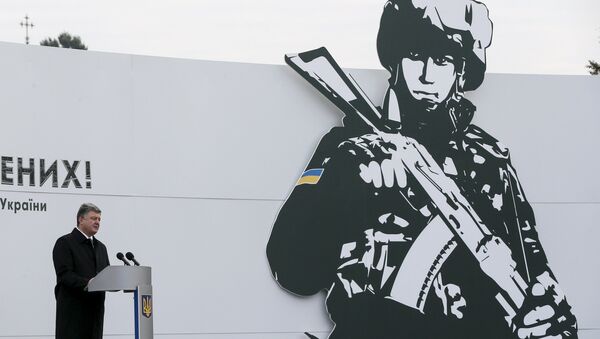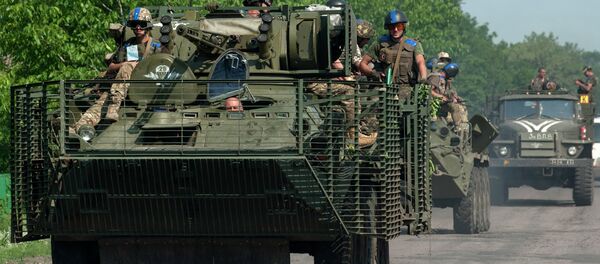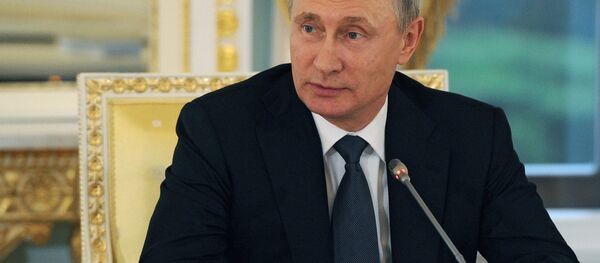Speaking to media during a visit to the Western Ukrainian region of Lvov on Thursday, Poroshenko warned that the threat of an armed escalation in the diplomatic conflict with Moscow was considerable, adding that "we cannot rule out a full-scale Russian invasion."
Accordingly, Poroshenko noted that "the deterioration of the situation in the east and in Crimea does not exclude the possibility that in the event of further escalation, we will be forced to impose martial law and declare mobilization."
Commenting on the president's remarks, Ukrainian journalist Dmitri Galkin told the independent Russian online newspaper Svobodnaya Pressa that factually, they have nothing to do with any so-called 'Russian threat'.
"The Ukrainian government fears a surge in protest activity in the fall," the analyst noted. "For a long time, the growth of social protest was constrained by fears within Ukrainian society associated with a Russian invasion. Now, this fear has gradually begun to subside, and with it the country's social problems have once again come to the foreground among the public."
"Therefore," Galkin noted, "the authorities would like Ukrainians to believe in the real possibility of a military confrontation with Russia. This is the only way for the president to strengthen his position."
Asked whether Ukraine really faces the threat of martial law, the political analyst suggested that ultimately, "everything depends on what it is Ukrainian authorities fear more: growing public discontent or growing irritation in Washington and Brussels" from Kiev's benefactors. "If the fear of mass protests outweighs the latter, the government can decide to impose martial law. However, in my opinion, this is still unlikely."
Still, the analyst also noted that the introduction of martial law would disrupt the Minsk peace process, causing resentment among Kiev's Western benefactors, and "dramatically enhancing Russia's foreign policy positions. Poroshenko knows this, and therefore there are serious reasons to doubt that things will move beyond propagandistic statements designed to intimidate Ukrainian society."
For his part, Ukrainian political scientist Alexander Dudchak suggested that Poroshenko's comments amount to political "panic."
"Time is not on the side of Ukrainian authorities. They have had zero successes. None of the promises made during the Maidan 'revolution' have been fulfilled; Crimea left, the Donbass was lost; the economy is in ruins. The war in the Donbass has led to material losses for Europe. The West's interest in Ukraine has declined dramatically. No one wants to assist the country even with loans. Debts must be repaid."
Effectively, Dudchak too suggested that while Poroshenko may temporarily benefit from the imposition of martial law, he has to realize "that such a decision will radically narrow his opportunities for political maneuver."
"It's sad that for the sake of their own selfish interests, the leadership in Kiev is willing to put the lives of thousands of their fellow citizens at risk," Dudchak concluded.





